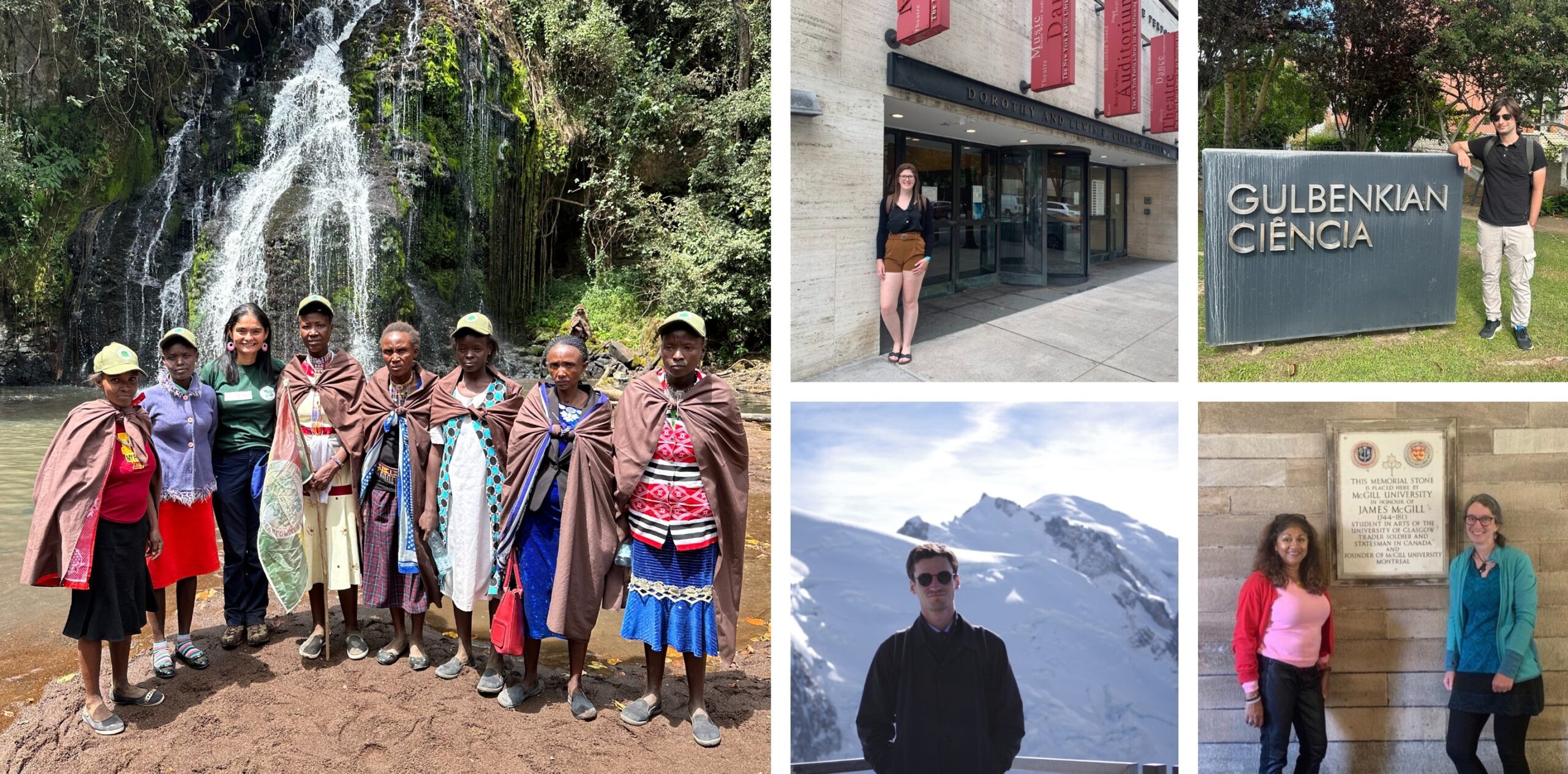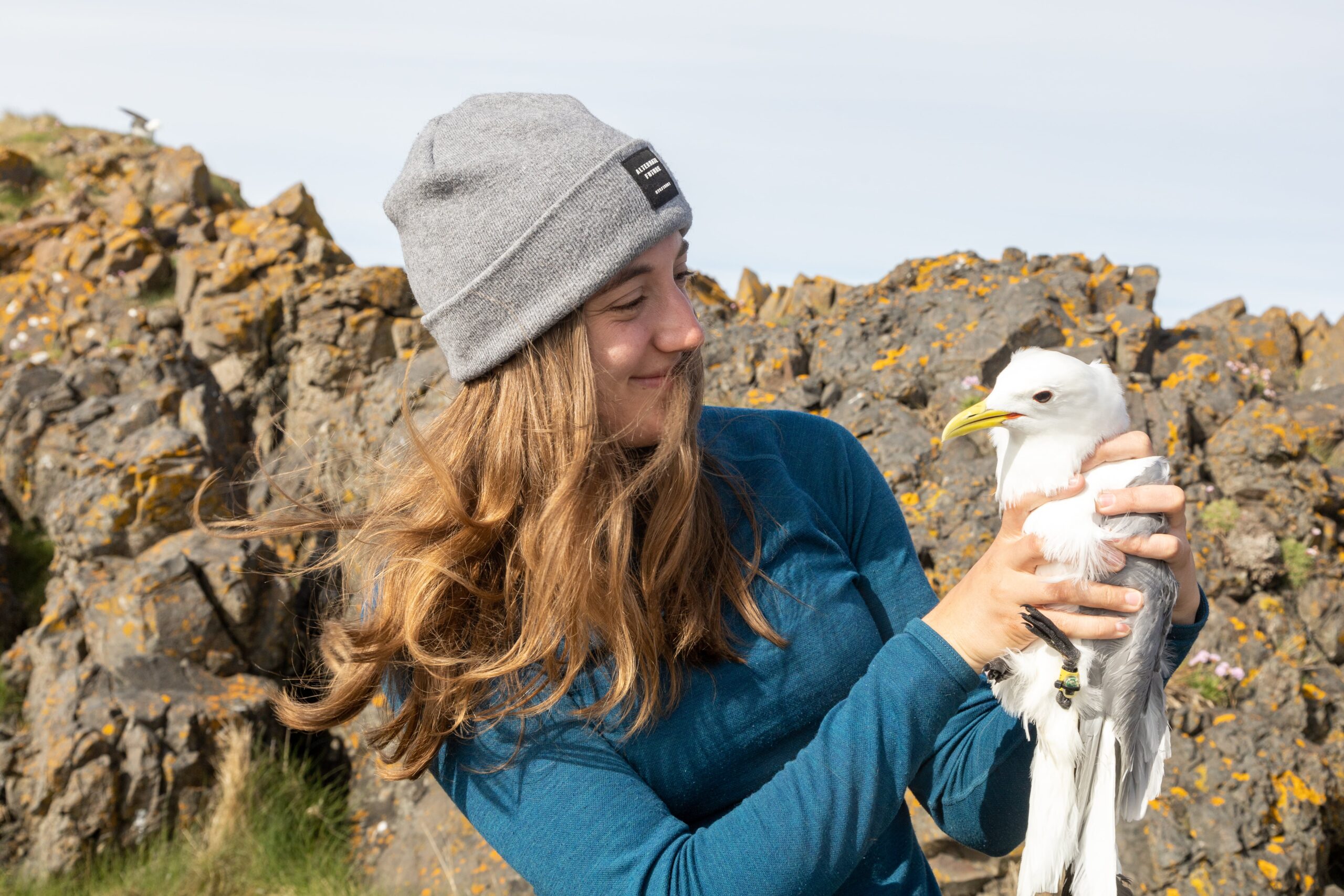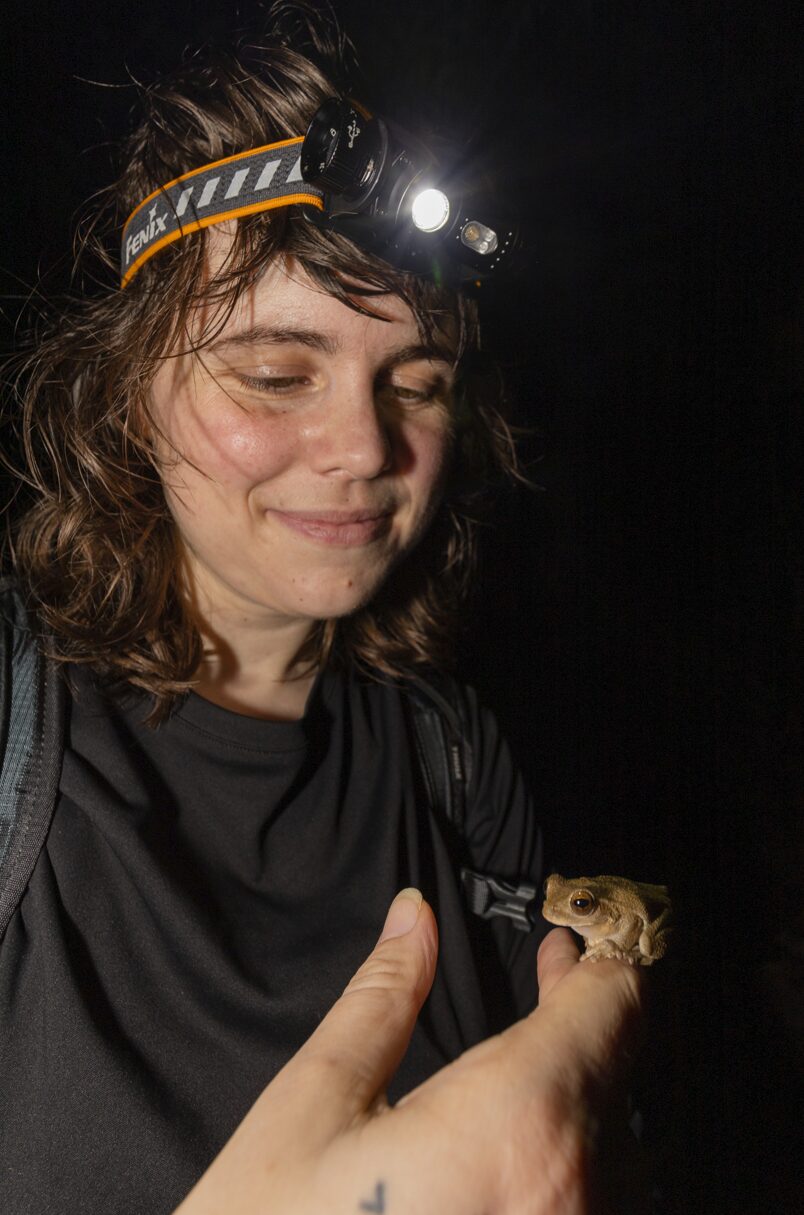
McGill’s Graduate Mobility Award (GMA) provides up to $1,500 per month for a maximum of eight months to McGill graduate students wishing to conduct activities outside the province that will contribute to the completion of their theses or research projects.
Since 2016, the GMA has funded over 1,300 students in their travel to over 85 countries around the world. By making research-related travel possible for so many students, the award aims to boost the cutting-edge work of McGill graduate students. With the support of the GMA, McGill graduate students can carry out field work and collect data, learn new methods and techniques, and establish international research collaborations.
To get a more detailed view of what exactly McGill graduate students are doing while on GMA-funded research travel, we reviewed the testimonials from GMA awardees in the recently published 2020-2023 Graduate Mobility Award Traveler’s Logs.
Supporting innovative research
One major motivation for graduate student travel with GMA support was to carry out research necessary for their theses and dissertations, including data collection in the field or archives. The travel destinations – and the research students do there – are as varied as McGill’s graduate programs.

Julia Baak, PhD student in Renewable Resources used her GMA to travel to Iceland where she “deployed geolocation sensors on black-legged kittiwakes [a kind of seagull] to examine their migration and how this may impact the amount of plastic and plastic-related contaminants in their system.”
Law Master’s student Luisa Castañeda-Quintana writes in her traveler’s log that she traveled to two countries – Kenya and Colombia – to “learn and understand about the situation of Indigenous people, in relation to legal recognition and challenges due to climate change.”
Alexandra Jonker, PhD student from Music, did archival research in the New York Public Library for Performing Arts. “This was my first time doing archival research and allowed me to view primary materials ([pianist and composer Johanna] Beyer’s handwritten scores) that will be extremely valuable for my dissertation work,” she writes.
New methods, techniques, and skills

Apart from collecting data for their research, many graduate students travelled to learn new methods, techniques, and skills that they later implemented in their own research.
“I acquired numerous new research skills such as swabbing frogs for infection, collecting and identifying species at various life stages, conducting qPCR, and sequencing DNA,” writes Biology Master’s student Kelsey Wilson, about her research in Panama.
During his GMA at the Instituto Gulbenkian de Ciência in Portugal, Master’s student in Experimental Medicine Tom Shimkus was able to “practice new techniques and learn from experts in my field, making use of their high-quality materials and cutting-edge facilities to extend our research efforts.”
Lasting connections
While research work is front and centre for GMA awardees, they also make productive connections, cultivate solid friendships, and have some well-deserved fun during their travels.
For example, during his research stay in France, Physics Master’s student Leo Goutte had the opportunity to present his research to experts. As he writes, “a lecturer came up to my poster and pointed me to a paper with similar and highly applicable results that he wrote! We kept discussing this over dinner and on our six-hour Sunday hike.”
In some cases, students forge connections that benefit their whole community, transforming into ambassadors for McGill around the world.
Take Arianne Maraj, PhD student from Integrated Studies in Education, who travelled to the University of Glasgow in Scotland. “I was referred to, jokingly, as the spokesperson to continue building the relationship between the two Schools of Education. Moreover, I have put some of my cohort members in touch with researchers [in Scotland] … In terms of building McGill’s international relationships, the GMA has been instrumental.”
For more travel stories from GMA awardees, check out the Traveler’s Logs.
Details on the application process for the Graduate Mobility Award can be found on the Graduate and Postdoctoral Studies website.
